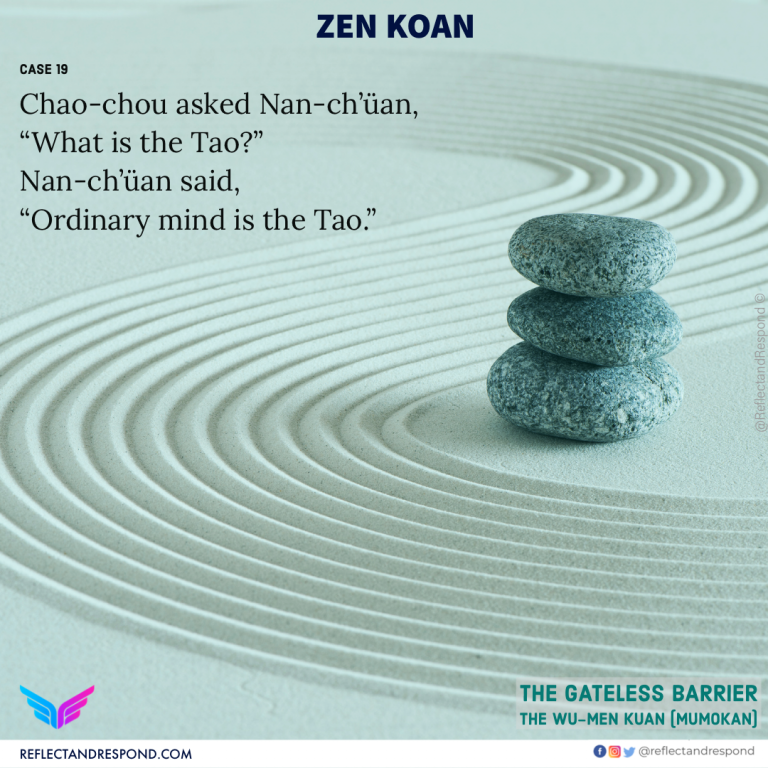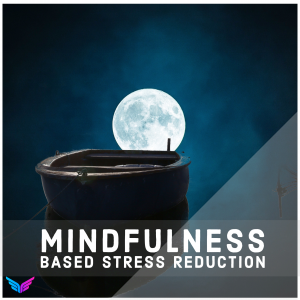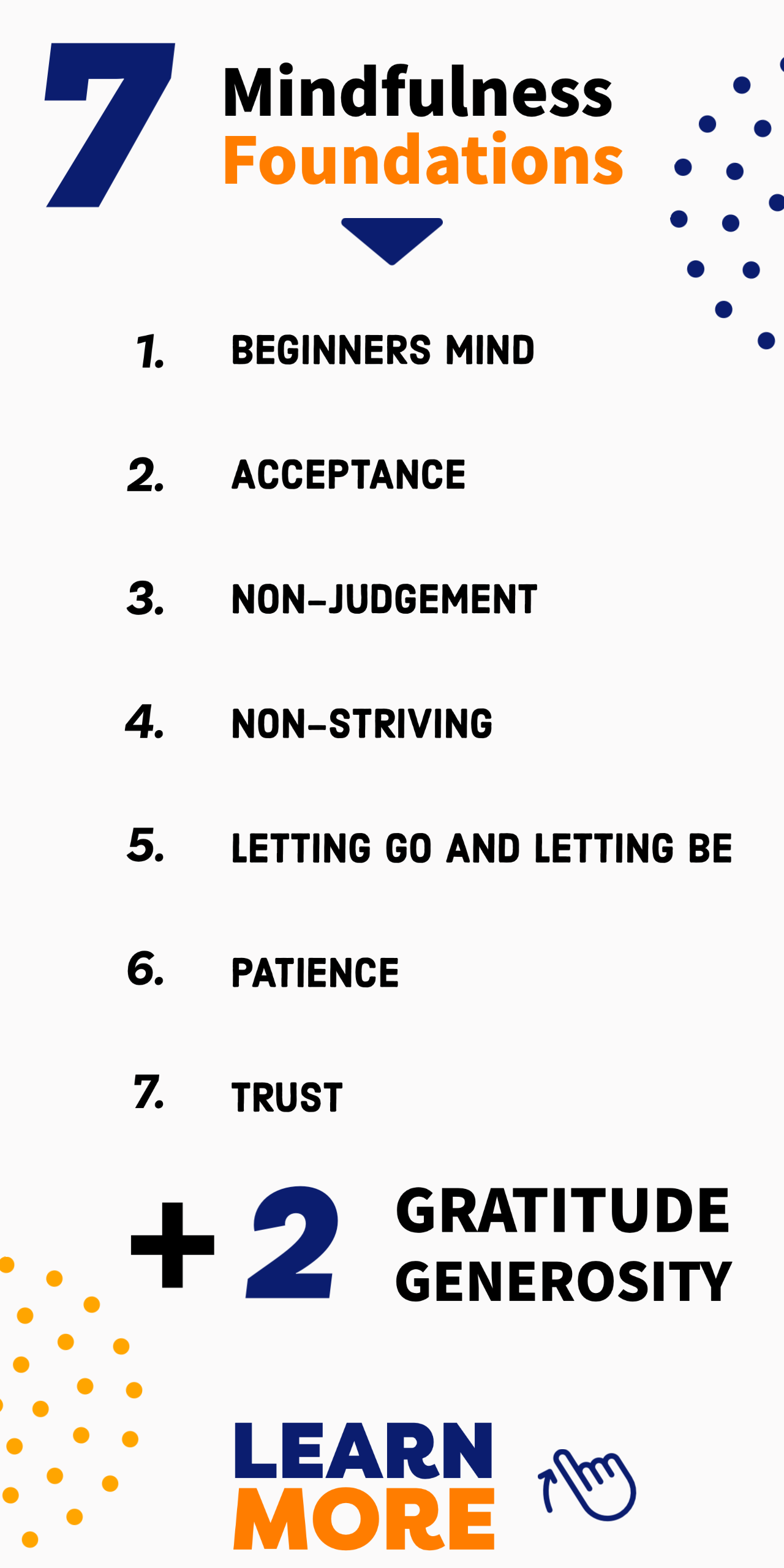Nan-ch’üan: “Ordinary mind is the Tao.”
Chao-chou asked Nan-ch’üan, “What is the Tao?”
Nan-ch’üan said, “Ordinary mind is the Tao.”
Chao-chou asked, “Should I try to direct myself toward it?”
Nan-ch’üan said, “If you try to direct yourself you betray your own practice.”
Chao-chou asked, “How can I know the Tao if I don’t direct myself?”
Nan-ch’üan said, “The Tao is not subject to knowing or not knowing. Knowing is delusion; not knowing is blankness. If you truly reach the genuine Tao, you will find it as vast and boundless as outer space. How can this be discussed at the level of affirmation and negation?”
With these words, Chao-chou had sudden realization.
“What is the Tao?
Ordinary mind is the Tao”
-Nan-ch’üan
WU-MEN’S COMMENT
Questioned by Chao-chou, Nan-ch’üan lost no time in showing the smashed tile and the melted ice, where no explanation is possible. Though Chao-chou had realization, he could confirm it only after another thirty years of practice.
WU-MEN’S VERSE
“Spring comes with flowers, autumn with the moon, summer with breeze, winter with snow.
When idle concerns don’t hang in your mind,
that is your best season.”
Case 19 is from the book:
The Gateless Barrier is generally acknowledged to be the fundamental koan collection in the literature of Zen.
Gathered together by Wu-men (Mumon), a thirteenth-century master of the Lin-chi (Rinzai) school, it is composed of forty-eight koans, or cases, each accompanied by a brief comment and poem by Wu-men.
Robert Aitken, one of the premier American Zen masters, has translated Wu-men’s text, supplementing the original with his own commentary — the first such commentary by a Western master — making the profound truths of Zen Buddhism accessible to serious contemporary students and relevant to current social concerns.
What is a KOAN?
“A koan is a surprising or paradoxical word or phrase, taken from an anecdote, that is used as an object of meditation in traditions descended from Chinese Chan Buddhism, like Japanese Zen. Contemplating these words is part of the training given by a teacher to help a Buddhist student to awaken.” Read more
















